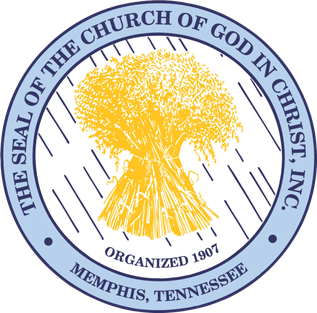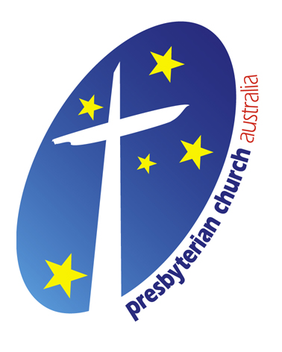Related Research Articles

The Christian Church (Disciples of Christ) is a mainline Protestant Christian denomination in the United States and Canada. The denomination started with the Restoration Movement during the Second Great Awakening, first existing during the 19th century as a loose association of churches working towards Christian unity, then slowly forming quasi-denominational structures through missionary societies, regional associations, and an international convention. In 1968, the Disciples of Christ officially adopted a denominational structure at which time a group of churches left to remain nondenominational.

The Church of God in Christ (COGIC) is a Holiness–Pentecostal Christian denomination, and the largest Pentecostal denomination in the United States. Although an international and multi-ethnic religious organization, it has a predominantly African-American membership based within the United States. The international headquarters is in Memphis, Tennessee. The current Presiding Bishop is Bishop John Drew Sheard Sr., who is the Senior Pastor of the Greater Emmanuel Institutional Church of God in Christ of Detroit, Michigan. He was elected as the denomination's leader on March 27, 2021.

The Church of the Nazarene is a Christian denomination that emerged in North America from the 19th-century Wesleyan-Holiness movement within Methodism. It is headquartered in Lenexa within Johnson County, Kansas. With its members commonly referred to as Nazarenes, it is the largest denomination in the world aligned with the Wesleyan-Holiness movement and is a member of the World Methodist Council.

The Restoration Movement is a Christian movement that began on the United States frontier during the Second Great Awakening (1790–1840) of the early 19th century. The pioneers of this movement were seeking to reform the church from within and sought "the unification of all Christians in a single body patterned after the church of the New Testament."

The United Church of Christ (UCC) is a mainline Protestant Christian denomination based in the United States, with historical and confessional roots in the Congregational, Calvinist, and Lutheran traditions, and with approximately 4,700 churches and 745,230 members. The United Church of Christ is a historical continuation of the General Council of Congregational Christian churches founded under the influence of New England Pilgrims and Puritans. Moreover, it also subsumed the third largest Calvinist group in the country, the German Reformed. The Evangelical and Reformed Church and the General Council of the Congregational Christian Churches united on June 25, 1957, to form the UCC. These two denominations, which were themselves the result of earlier unions, had their roots in Congregational, Lutheran, Evangelical, and Reformed denominations. At the end of 2014, the UCC's 5,116 congregations claimed 979,239 members, primarily in the U.S. In 2015, Pew Research estimated that 0.4 percent, or 1 million adult adherents, of the U.S. population self-identify with the United Church of Christ.
Greenville Presbyterian Theological Seminary is a confessional Presbyterian seminary in Taylors, South Carolina, United States. Founded in 1986, Greenville Presbyterian Theological Seminary exists to equip preachers, pastors, and churchmen for Christ's Kingdom. The school is modeled on Old Princeton Theological Seminary of the late 19th and early 20th centuries. It teaches the accuracy and doctrinal integrity of the Westminster Confession of Faith, together with the Larger and Shorter Catechisms, as adopted by the Presbyterian Church in America. It is not affiliated with a specific denomination, but graduates of the Seminary minister in denominations such as the Presbyterian Church in America (PCA), Orthodox Presbyterian Church (OPC). Associate Reformed Presbyterian Church (ARP), United Reformed Churches in North America (URCNA), Reformed Church in the United States (RCUS), Reformed Presbyterian Church, Free Church of Scotland, Evangelical Presbyterian Church in England and Wales (EPCEW), Reformed Presbyterian Church of North America (RPCNA), Igreja Presbiteriana do Brasil, Association of Reformed Baptist Churches of America (ARBCA), Reformed Baptist Network (RBN), Communion of Reformed Evangelical Churches (CREC), Bible Presbyterian Church (BPC), Presbyterian Reformed Church (PRC), and in a number of Independent congregations. The current president of the seminary is Jonathan Master, formerly the Dean of the School of Divinity at Cairn University.
The Churches of Christ, most commonly known as the Church of Christ or church of Christ, is a loose association of autonomous Christian congregations based on the sola scriptura doctrine. Their practices are based on Bible texts and draw on the early Christian church as described in the New Testament.
The Church of the United Brethren in Christ is an evangelical Christian denomination with churches in 17 countries. It is Protestant, with an episcopal structure and Arminian theology, with roots in the Mennonite and German Reformed communities of 18th-century Pennsylvania, as well as close ties to Methodism. It was organized in 1800 by Martin Boehm and Philip William Otterbein and is the first American denomination that was not transplanted from Europe. It emerged from United Brethren churches that were at first unorganized, and not all of which joined this church when it was formally organized in 1800, following a 1789 conference at the Otterbein Church.
The Bible Fellowship Church is a conservative pietistic Christian denomination with Mennonite roots.

The label "non-institutional" refers to a distinct fellowship within the Churches of Christ who do not agree with the support of parachurch organizations by local congregations. They contend that the New Testament includes no authority for churches' support of such institutions. Instead they feel that it is a responsibility and duty of the individual members to assist those in need. Similarly, most non-institutional congregations also oppose the use of church facilities for non-church activities ; as such, they oppose the construction of "fellowship halls", gymnasiums, and similar structures. The belief is that, although such activities may be beneficial, they are not a proper function of a local congregation.

The Presbyterian Church in the United States of America (PCUSA) was the first national Presbyterian denomination in the United States, existing from 1789 to 1958. In that year, the PCUSA merged with the United Presbyterian Church of North America, a denomination with roots in the Seceder and Covenanter traditions of Presbyterianism. The new church was named the United Presbyterian Church in the United States of America. It was a predecessor to the contemporary Presbyterian Church (USA).

The Presbyterian Church of Australia (PCA) is the largest Presbyterian denomination in Australia.

The Assemblies of God USA (AG), officially the General Council of the Assemblies of God, is a Pentecostal Christian denomination in the United States. The Assemblies of God is the U.S. branch of the World Assemblies of God Fellowship, the world's largest Pentecostal body. With a constituency of over 3 million in 2011, the Assemblies of God was the ninth largest Christian denomination and the second largest Pentecostal denomination in the United States before declining to 2,932,466 in 2021.
The Gospel Broadcasting Network(GBN) is an American Christian satellite broadcast network, which broadcasts 24 hours a day, seven days a week.
The Churches of Christ in Christian Union (CCCU) is a Wesleyan-Holiness and Restorationist Christian denomination.
The Japan Evangelical Lutheran Church or JELC is a Lutheran church in Japan. It currently has approximately 21,990 baptized members in 122 congregations nationwide.

The United Church of Christ in the Philippines is a Christian denomination in the Philippines. Established in its present form in Malate, Manila, it resulted from the merger of the Evangelical Church of the Philippines, the Philippine Methodist Church, the Disciples of Christ, the United Evangelical Church and several independent congregations.
The Presbyterian Church of the Philippines (PCP), officially The General Assembly of the Presbyterian Church of the Philippines, is a growing evangelical, Bible-based Reformed church in the Philippines. It was officially founded in 1987 and the General Assembly was organized in September 1996.
The National Council of Congregational Churches of the United States was a mainline Protestant, Christian denomination in the United States. Its organization as a denomination was delayed by the Civil War. Congregational leaders met again in Boston, Massachusetts in 1865, where they began to hammer out standards of church procedures (polity) and adopted a statement of faith, known as the Burial Hill Declaration. Denominational organization came in 1871 with formation of the National Council of Congregational Churches, which existed until its merger in 1931. In 1928, there were 5,497 Congregational churches in the U.S. with a membership of 939,130. These churches were served by 5,648 ministers.
Lillie Delenzia Cypert served as an American missionary in Japan from October 1917 to December 1943 when she returned to the United States as part of a civilian exchange. Along with Sarah Shepherd Andrews and Hettie Lee Ewing, other single missionaries, she contributed greatly to the setting up of permanent Japanese congregations of the Churches of Christ.
References
- ↑ "The Church Jesus Built: Innovations in the Work of the Church". Executable Outlines. Retrieved 2007-10-15.
- ↑ "Estes church of Christ Haiti Disaster Relief Website". Estes church of Christ. Retrieved 2011-03-07.
- ↑ ""And Now, A Word From Our Sponsors"". Archived from the original on 2010-10-29. Retrieved 2007-10-15.
- ↑ Harrell, David Edwin (2005). "Noninstitutional Movement". The Encyclopedia of the Stone-Campbell Movement. William B. Eerdmans Publishing Company. p. 568. ISBN 0-8028-3898-7.
- ↑ "One Nation Under God" . Retrieved 2008-12-01.
- ↑ "Churches of Christ Organize In a National Campaign To Evangelize America". Truth Magazine. Retrieved 2007-10-15.[ dead link ]
- ↑ "Church Planting is More than Pioneering". Monthly Missiological Reflection #12. Dr. Gailyn Van Rheenen. May 2008. Archived from the original on 5 July 2008. Retrieved 1 December 2008.
- ↑ Jonas, Jim (March 2001). "A History of the Church of Christ from World War II to the Present" (PDF). Bible Study Central. Terry DeLaney. Retrieved 1 December 2008.
- ↑ Hughes, Richard Thomas; R.L. Roberts (2001). The Churches of Christ. Greenwood. pp. 107–110. ISBN 0-313-23312-8.